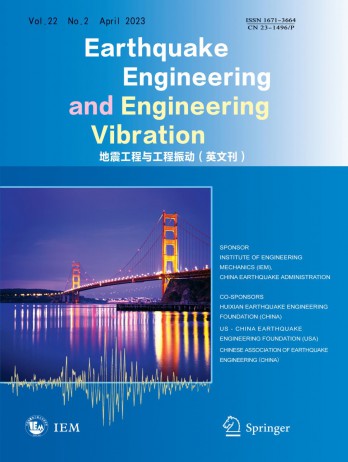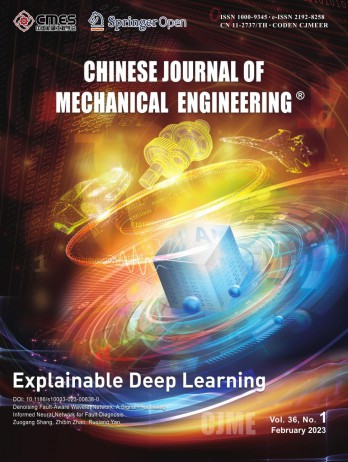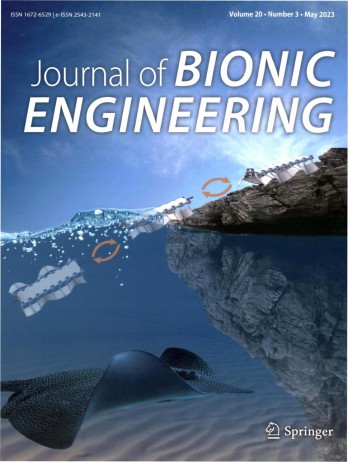《Earthquake Engineering and Engineering Vibration》雜志論文格式要求:
Title Page:
The title page should contain: Title, Authors, Affiliations,
Acknowledgement, and Footnotes supplying: Correspondent
author‘s information including: the full name, complete mailing address, telephone and fax number, and, if available, e-mail address; Job titles of all authors; and The name(s) of sponsor(s) of the research contained in the paper, along with grant number(s), if any.
General: The manuscript should be provided in single-spaced typing Time New Roman, 10.5 pt., on A4 size pages in electronic format using Microsoft Word. It must be written in English and should not exceed 13,000 word-equivalents. (A journal page contains approximately 1,300 words.) Technical notes should not exceed 4,000 word-equivalents. If it is necessary to include additional information, such as appendices, these should be submitted electronically for inclusion on a web site for the journal.
Abstracts: Each paper should include an Abstract of 150-200 words, reporting concisely on the purpose of the work, the scope of the effort, the procedures used to execute the work (if of special interest), the major findings, and a list of three to eight keywords. The abstract must be self-contained, and it must not require reference to the paper to be understood.
Text: Follow this order when typing manuscripts: Title, Abstract, Keywords, Main text, Appendix, References, Vitage, Figures (including captions) and then Tables. Footnotes are to be avoided (except for table footnotes). Please complete text minus the title page, acknowledgment, and any running headers with author names, to allow blinded review.
Units: The SI system is to be used throughout; if it is necessary to use other units, these should be added in parentheses.
References
References should appear within the text as the author name(s) followed by the year of publication in parentheses. A list of all references must be given at the end of the text in alphabetical order by last name of first author. Make sure the reference information is complete and accurate, including as necessary and in the following order: last names and initials of all authors; year of publication; title of paper, report or book chapter (in quotes); title of book or periodical (in italic); volume and issue numbers; name and location of publisher (for books), name and location of publisher or sponsor for proceedings), or city of publication (for non-U.S. journals); and inclusive page numbers. The references should be listed in the following style:
Liu Huixian and Zhang Zaiyong (1980), “Lessons Learned from the 1976 Tangshan Earthquake,” Proceedings of the 7th World Conference on Earthquake Engineering, Vol. IX, Istanbul, Turkey, pp.453– 460.
Huo Linsheng and Li Hongnan (2004), “Torsionally Coupled Response Control of Offshore Platform Structures Using Circular Tuned Liquid Column Dampers,” China Ocean Engineering, 18(2):173–183. (in Chinese)
Newmark NM and Rosenblueth E (1971), Fundamentals of Earthquake Engineering, Prentice-Hall, Inc., Englewood Cliffs, N.J.
基本信息
《Earthquake Engineering and Engineering Vibration》雜志是由中國地震局主管,中國地震局工程力學(xué)研究所主辦的國內(nèi)外公開發(fā)行的學(xué)術(shù)理論期刊,創(chuàng)刊于2002年,是國內(nèi)地質(zhì)領(lǐng)域具有廣泛影響力的權(quán)威刊物。
該雜志國內(nèi)刊號(hào)為23-1496/P,國際刊號(hào)為1671-3664,現(xiàn)被CSCD 中國科學(xué)引文數(shù)據(jù)庫來源期刊(含擴(kuò)展版)、知網(wǎng)收錄(中)、維普收錄(中)、萬方收錄(中)、EI 工程索引(美)、SA 科學(xué)文摘(英)、SCI 科學(xué)引文索引(美)、劍橋科學(xué)文摘等權(quán)威數(shù)據(jù)庫收錄。
此外,還榮獲多項(xiàng)榮譽(yù),如:中國優(yōu)秀期刊遴選數(shù)據(jù)庫、中國期刊全文數(shù)據(jù)庫(CJFD)等,這些都體現(xiàn)了該雜志在推動(dòng)地質(zhì)理論與實(shí)踐發(fā)展方面的重要貢獻(xiàn)。
欄目設(shè)置
《Earthquake Engineering and Engineering Vibration》雜志欄目涵蓋地質(zhì)領(lǐng)域多個(gè)維度,包括:強(qiáng)震觀測(cè)與分析、結(jié)構(gòu)和工程體系震害評(píng)定、土木基礎(chǔ)設(shè)施的地震危害性和危險(xiǎn)性分析、場(chǎng)地效應(yīng)和巖土地震工程等。
作為一本具有較高學(xué)術(shù)水平和影響力的地質(zhì)雜志,多年來一直致力于推動(dòng)地質(zhì)領(lǐng)域的改革與發(fā)展,為地質(zhì)工作者和研究者提供了一個(gè)交流和探索的平臺(tái),對(duì)促進(jìn)我國地質(zhì)事業(yè)的發(fā)展起到了積極的作用。
《Earthquake Engineering and Engineering Vibration》雜志往年文章平均引文率
聲明:本信息依據(jù)互聯(lián)網(wǎng)公開資料整理,若存在錯(cuò)誤,請(qǐng)及時(shí)聯(lián)系我們及時(shí)更正。



